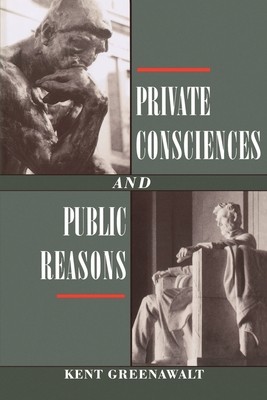
- We will send in 10–14 business days.
- Author: Kent Greenawalt
- Publisher: Oxford University Press, USA
- ISBN-10: 0195094190
- ISBN-13: 9780195094190
- Format: 15.4 x 23.3 x 1.6 cm, softcover
- Language: English
- SAVE -10% with code: EXTRA
Reviews
Description
Within democratic societies, a deep division exists over the nature of community and the grounds for political life. Should the political order be neutral between competing conceptions of the good life or should it be based on some such conception? This book addresses one crucial set of problems raised by this division: What bases should officials and citizens employ in reaching political decisions and justifying their positions? Should they feel free to rely on whatever grounds seem otherwise persuasive to them, like religious convictions, or should they restrict themselves to "public reasons," reasons that are shared within the society or arise from the premises of liberal democracy? Kent Greenawalt argues that fundamental premises of liberal democracy alone do not provides answers to these questions, that much depends on historical and cultural contexts. After examining past and current practices and attitudes in the United States, he offers concrete suggestions for
appropriate principles relevant to American society today. This incisive and timely analysis by one of our leading legal philosophers should attract a wide and diverse readership of scholars, practitioners, and concerned citizens.
EXTRA 10 % discount with code: EXTRA
The promotion ends in 20d.09:00:04
The discount code is valid when purchasing from 10 €. Discounts do not stack.
- Author: Kent Greenawalt
- Publisher: Oxford University Press, USA
- ISBN-10: 0195094190
- ISBN-13: 9780195094190
- Format: 15.4 x 23.3 x 1.6 cm, softcover
- Language: English English
Within democratic societies, a deep division exists over the nature of community and the grounds for political life. Should the political order be neutral between competing conceptions of the good life or should it be based on some such conception? This book addresses one crucial set of problems raised by this division: What bases should officials and citizens employ in reaching political decisions and justifying their positions? Should they feel free to rely on whatever grounds seem otherwise persuasive to them, like religious convictions, or should they restrict themselves to "public reasons," reasons that are shared within the society or arise from the premises of liberal democracy? Kent Greenawalt argues that fundamental premises of liberal democracy alone do not provides answers to these questions, that much depends on historical and cultural contexts. After examining past and current practices and attitudes in the United States, he offers concrete suggestions for
appropriate principles relevant to American society today. This incisive and timely analysis by one of our leading legal philosophers should attract a wide and diverse readership of scholars, practitioners, and concerned citizens.


Reviews